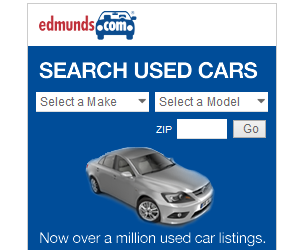How to find the fair trade in value for your vehicle?
Valerie Raskovic

Getting a new car should be an experience that is nothing but positive. Yes, you might be spending a good deal of money and yes, the options can seem endless. But in the end, you will be going home with a brand-new car and that is something to celebrate. Plus, if you are trading in an old vehicle for a new one, your options can be incredibly helpful.
You could opt to trade in your old automobile when it's time to acquire a new one. However, knowing your automobile's trade-in value is critical if you want to receive a fair price for your old car. If you're going to trade in your automobile at a dealership, do your homework first and make sure you negotiate the trade-in price separately from the new vehicle's purchase price. Making a few minor repairs to the automobile you're trading in might also assist in increasing its value. No matter if your old car needs or doesn’t need repairs, you have many choices to get a new vehicle in place of your old one. All you need to know is what to look for and how to get a good value for your automobile.
So, what are the easiest steps to get the best bang for your buck when trading in an old car?
Do Your Research
While trading in your automobile is a convenient method to get rid of your old car, you may not bring in as much money as you would if you sold it privately. The dealer, after all, wants to make a profit on the automobile, so it's unlikely for them to pay full retail value. The trick is to do your homework before going to the dealer; it'll be difficult to tell if you've obtained a fair bargain if you don't know how much your automobile is worth. To help assess the vehicle’s value, it is important to learn more about the vehicle's pros and cons. This is why it is so important to run a vehicle history report.
However, just because you won't get top dollar for your trade-in doesn't mean you won't get a fair deal. The trick is to do your homework before going to the dealer; it'll be difficult to tell if you've obtained a fair bargain if you don't know how much your automobile is worth.
Luckily, there are several tools available to assist you in determining how much your automobile is worth on the open market. You may investigate the projected worth of your automobile using Kelley Blue Book, Consumer Reports, Edmunds, and even classifieds online, depending on criteria such as its make and model, condition, optional equipment, and mileage. If you can discover similar vehicles that have recently sold in your region, you may be able to validate the amount you believe the dealer should pay for your automobile. It takes a bit of haggling at times, but it is worth it because it can greatly increase the sum you receive.
Part of doing research means comparing your car with others currently on sale. It is best that you look into automobile listings in your local classified ads and see what they are selling for. Make sure to take note of the asking prices for cars similar to yours so you are in the right ballpark with the ideal price for your used car.
If you have evidence that your automobile is worth more than the dealer is prepared to pay, the dealer may be more inclined to boost the price. Make sure that you spend a lot of time and research multiple sources before you show them to any dealer. And keep in mind that the car dealer might deny your request and still try to buy your car for a low price. If that happens, you have another option.
Shop (and Sell) Around
You are not required to trade in your vehicle at the same dealership where you will purchase your new vehicle. Get quotes for your trade-in from a few different auto dealers to discover who would give you the best price.
Remember that this is a large expense and you should be compensated appropriately. Also, take your time. Some people want to rush through the process and get a payday for their car as soon as possible. That isn’t the smartest approach and you need to remember that this process takes time - and it should.
Take your time and don’t speed through selling your old car for a new one. Additionally, it is smart for you to obtain written evaluations from a number of dealers so that you may compare offers and utilize them to aid in negotiations.
Make Some Repairs
It's possible that making substantial repairs to a car before trading it in isn't worth it. However, small repairs, such as touching up dents and dings, might be useful.
Before driving your automobile to the dealer, wash, polish, and detail it to help it create a good first impression when the dealer inspects it before making an offer. A skilled detailer can remove smells and grime that can reduce your vehicle's condition from outstanding to good to fair to terrible.
Keep Transactions Separate
It should come as no surprise that dealerships want to obtain your trade-in for as low as possible so they can resell it for a profit. Stick to your guns about receiving a fair trade-in value and wait for a dealership that is ready to play by the rules.
Keep the two transactions separate if you're trading in at the same dealership where you'll be buying your new car, so the dealer can't try to leverage one end of the sale while undercutting the other. After you've agreed on a price for the automobile you desire, indicate that you have a trade-in.
Conclusion
Getting the right value for a car you are trading in is a vital part of the car-buying process. If you don’t get the right amount for your old automobile, your new car will cost you so much more. There really is no reason to not do the work and spend the time making sure your used car is ready to be sold and ready for the market.
It might take a bit of extra time, but there is no need to rush through buying a car. Take your time, do your research, and make the appropriate repairs and changes to your car and it will be in the best shape possible.
Read more articles

